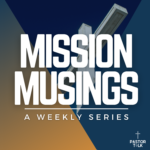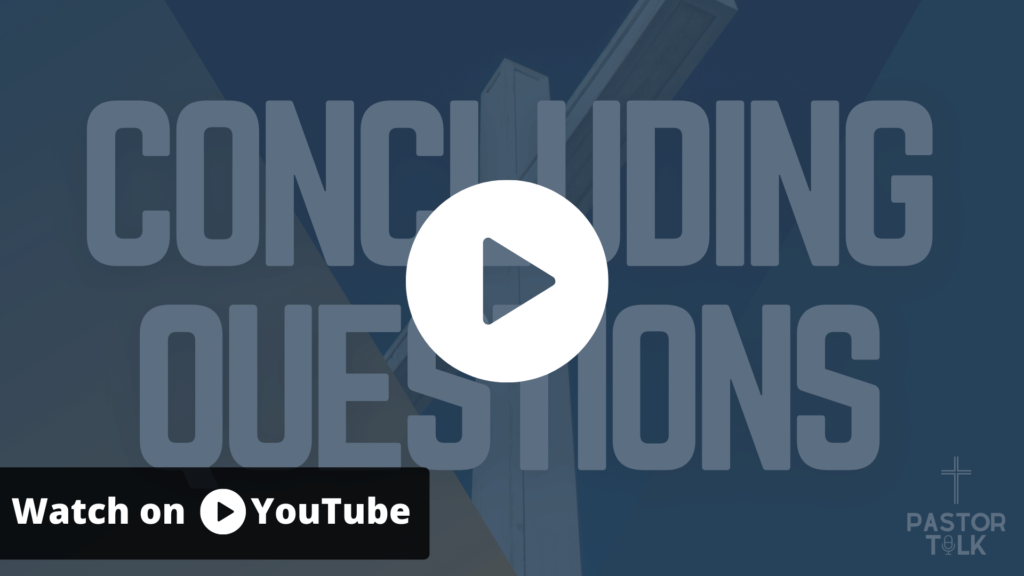
In this series conclusion, Pastors Clint and Michael explore the many questions left behind by the missional conversation, especially how these conversations become practical in the life and practice within a church. Be sure to stay tuned to the end for when the Pastors make predictions as to what challenges and strategies that future generations of the Church might engage in their efforts to be faithful to the Gospel. Though this series raises far more questions than it answers, we sincerely hope that it sparks a generative conversation about the nature of the church and our own identities as followers of Jesus Christ.
Be sure to share this with anyone who you think might be interested in rediscovering a missional Christian identity with us.

Pastor Talk Quick Links:
- Learn more about the Pastor Talk series and view our previous studies at https://pastortalk.co
- Subscribe to get the Pastor Talk episodes via podcast, email and much more! https://pastortalk.co#subscribe
- Questions or ideas? Connect with us! https://pastortalk.co#connect
- Interested in joining us for worship on Sunday at 8:50am? Join us at https://fpcspiritlake.org/stream
